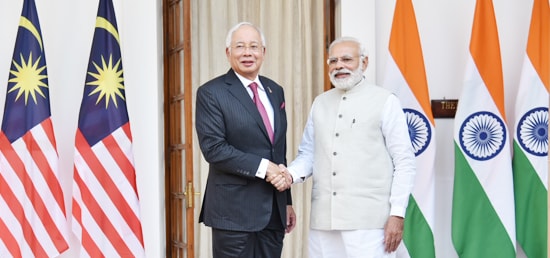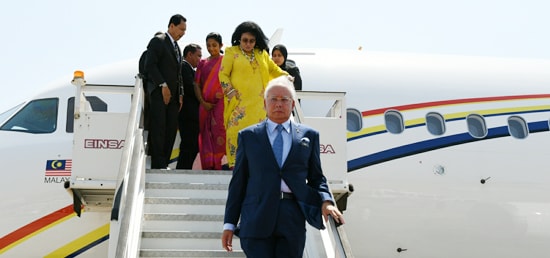
India, Malaysia unite against terror, bat for freedom of navigation
Ushering in a new phase in their reinvigorated partnership as key players in the emerging Asian order, India and Malaysia have signed seven agreements across the spectrum, and vowed to fight terror and radicalization of youth. In a message to China, the two countries decided to work proactively to promote freedom of navigation in the South China Sea, the site of territorial disputes between China and some Southeast Asian countries.
The agreements, some of which relate to recognition of each other’s educational degrees and palm oil production research, and the unmistakable focus on security cooperation, which followed talks between India’s Prime Minister Narendra Modi and visiting Malaysian Prime Minister Najib Razak in New Delhi on April 1, marked a qualitatively new high in relations between the two countries.
The most important among pacts inked in the presence of the two PMs was the proposed development of a urea and ammonia manufacturing plant in Malaysia and off-take of existing surplus urea from Malaysia to India. The project is expected to cost US$2 billion, with a capacity to produce 2.5 million tonnes per year and meant for catering to India’s market.
Above all, the Malaysian leader’s visit has imparted a new momentum to strategic partnership between the two countries. “We are leaders in the new emerging order in Asia and the world. Let us continue to work together to build a future based on stability, prosperity and understanding as the centre of the globe moves inexorably to East,” said Mr Razak in an article ahead of his visit to India.

